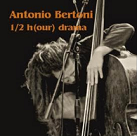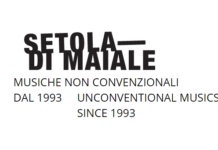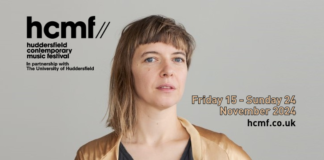
Joseph Beuys holds a special place in the history of those human “meteors” who did not have the right weight: in the sixties the equivalent in Europe of the spectacular and unconventional art-pop of Warhol was represented by Beuys’ paintings and by his eclectic support to the visual arts (especially sculptures, photos and short films). Beuys was an artist absolutely out of the ordinary and the art was a reason to live for him; in addition he sought in every way to offer it to others as a stimulus.
“I pose questions, I put on paper forms of language, as well as forms of sensibility, of intentions and ideas, and I do so with the purpose of stimulating the thought. Moreover, I would like not only stimulate the others, but also to provoke them. Even where this provocative character is not readily apparent -such as in the drawings- it is however present at depth “(J.Beuys) taken from Bastian, Simmen, Interview with Joseph Beuys, in Drawing, exhibition for the National Gallery in Berlin.
One day Joseph filmed a bottle for about an hour, so as to bring out the breath of the cameraman. That experience, full of tension, is the initial idea of the project of the double bass player Antonio Bertoni in this solitary debut for the Leo R.: “1/2 h(our) drama” is symptomatic of Beuys’ prerogatives and the use of the term drama suggests one of those provocations that is talked about, but musically we never had a musical representation of German artist. This free improvisation is portentous because Bertoni sets up a half hour of vigorous and sensory assault of the instrument, without succumbing for a second, respecting the philosophy that supports the project, namely to identify himself with the instrument and gain a voice by his stimulations.
In internal notes (brief but extremely interesting), you will discover the world of double bass player and the adherence of his musical avant-garde to the theorists of the symbiosis between man and nature. In confirmation of this acceptance, the cd’s librettist quotes a poetic passage from Deleuze supporting the “body without organs”.
“..A body without organs is conceived to be occupied and inhabited only by intensities. Only the intensities pass and circulate. In addition the Body Without Organs is not a scene, place or support where something could happen. Nothing to do with a dream, nothing to interpret…”
Gilles Deleuze, Felix Guattari, Milleplateaux p. 207
I do not know how many double bass players are able to show this dazzling excursion of freedom and art, the fact is that even Leo Feigin has been fascinated by the music of Bertoni …. “This is one of the most original, courageous and spectacular projects I have ever produced …. “.
“1/2 “h(our) drama” is one of those works that go in the direction of those fantastic theories (in present times) which considers the sounds as the main catalysts of the matter: in classical music composers have represented it through the overtones and saturations, Bertoni reaches it with improvisation.
“1/2 “h(our) drama” is one of those works that go in the direction of those fantastic theories (in present times) which considers the sounds as the main catalysts of the matter: in classical music composers have represented it through the overtones and saturations, Bertoni reaches it with improvisation.
_____________________________________________________________________________IT
Tra quelle meteore che la storia non ha ancora ben calcolato Joseph Beuys occupa un posto particolare: negli anni sessanta l’equivalente delle spettacolarità art-pop non convenzionali di Warhol in Europa era proprio rappresentata dai dipinti di Beuys e dal suo eclettico sostegno alle arti visive (sculture, foto e filmati soprattutto): artista assolutamente fuori dagli schemi, Beuys faceva dell’arte una ragione di vita e cercava in tutti i modi di proporla:
“Io pongo domande, metto sulla carta forme di linguaggio, così come forme di sensibilità, di intenti e di idee, e lo faccio con lo scopo di stimolare il pensiero. Per di più desidero non soltanto stimolare gli altri, ma anche provocarli. Anche là dove questo carattere provocatorio non è subito evidente -come ad esempio nei disegni- esso è comunque presente in profondità.” (J.Beuys) tratto da Bastian, Simmen, Interview with Joseph Beuys, in Drawing, mostra per la National Galerie di Berlino.
Un giorno Joseph si inventò la ripresa di una bottiglia filmandola per circa un’ora tanto da far emergere il respiro del cameraman: quell’esperienza carica di tensione è l’idea di partenza del progetto del contrabbassista Antonio Bertoni in questo esordio solitario per la Leo R.: “1/2 h(our) drama” è sintomatico delle prerogative di Beuys sin dal titolo: già l’uso del termine drama lascia pensare infatti ad una di quelle provocazioni di cui si parlava prima; ma musicalmente non avevamo mai avuto una rappresentazione musicale dell’artista tedesco: questa libera improvvisazione ha del portentoso perchè Bertoni imbastisce un set di mezz’ora di energica e sensoria aggressione dello strumento, senza mollare un secondo, rispettando la filosofia che sorregge il progetto, ossia quella di immedesimarsi nello strumento e tirarne fuori una voce dalle sue stimolazioni; nelle note interne di copertina, che più succinte e interessanti non potrebbero essere, si scopre il mondo del contrabbassista e l’aderenza della sua avanguardia ai teorici delle simbiosi tra uomo e natura. Non a caso viene in soccorso un passo di Deleuze che sorregge il “corpo senza organi”… “A body without organs is conceived to be occupied and inhabited only by intensities. Only the intensities pass and circulate. In addition the Body Without Organs is not a scene, place or support where something could happen. Nothing to do with a dream, nothing to interpret…”
Gilles Deleuze, Felix Guattari, Milleplateaux p. 207
Non so quanti contrabbassisti siano in grado di tirare fuori questa accecante dimostrazione di libertà ed arte, persino Leo Feigin ne è rimasto affascinato….“This is one of the most original, courageous and spectacular projects I have ever produced….”. Sta di fatto che lavori come “1/2 h(our) drama” vanno nella direzione di quelle fantascientifiche teorie (ad oggi) che proiettano i suoni come principali catalizzatori della materia: nella classica si sono avvicinati grazie agli overtoni e alle saturazioni, Bertoni la raggiunge con l’improvvisazione.







